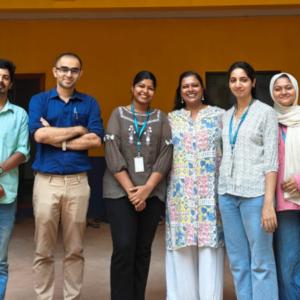Cancer is the second leading cause of death all around the world. WHO states that nearly 10 million deaths have been occurred in the year 2020 due to different cancer. The burden of cancer continues to grow throughout the world and puts a huge physical, emotional and financial burden on individuals, families, communities and health systems, hence finding the cure for this deadly disease is one of the significant task for modern medicine. Till now there is no single cure for cancer that has been found but there have been significant advancement in cancer treatment. Search of definitive cure for all type of cancer has been ongoing and progress has been made but still there are many challenges to overcome.
Cancer can start in any organ or tissue in the body when abnormal cells grow out of control and exceed normal limits, spreading in neighboring parts of the body or to other organs and they will form a mass of tissue called tumor. Not all tumors are cancerous, those who are not cancerous are called benign tumor and while those that can invade surrounding tissues and spread to other part of the body are called malignant tumor .There are different types of cancer, each with unique symptoms and treatment options in that lung cancer, prostate cancer, colorectal cancer and liver cancer are the most common in males and breast, cervical and ovarian cancers are the commonest among women. These cancers can be caused by many factors including environment, diet, work, viruses, habits and lifestyle.
As for now there are many treatment procedures which are available for different cancers according to the type and stage of cancer. In all these chemotherapy, radiation therapy, and surgery are the most commonly used and other than these immunotherapy, hormonal therapy, hyperthermia, laser therapy, photodynamic therapy, cryotherapy are also been used to treat.
Chemotherapy :- A drug used to kill cancer cells. Medicines can be given orally or intravenously Different types of drugs can be administered simultaneously or sequentially.
Surgery :- Surgery is a common treatment for many types of cancer. During the operation, the surgeon removes most of the cancer cells (tumors) and some of the surrounding tissue. Sometimes surgery is done to correct the side effects caused by the tumor.
Radiation therapy :-It kills cancer cells with X-rays, particles, or radioactive seeds. Cancer cells grow and divide faster than normal cells in the body.
Immunotherapy:-Immunotherapy is a type of cancer treatment that relies on the body’s ability to fight infections (the immune system).
Hormonal therapy :-Hormone therapy is used to treat cancers caused by hormones, such as breast, prostate, and ovarian cancer.
Hyperthermia :- uses heat to damage and kill cancer cells without harming normal cells.
Laser therapy :- uses a very narrow, focused beam of light to destroy cancer cells.
Photodynamic therapy :- a person gets a shot of a drug that is sensitive to a special type of light.
Cryotherapy :- Also called cryosurgery, this therapy uses very cold gas to freeze and kill cancer cells.
Significant progress has also been made in the field of cancer screening and diagnosis. Early detection is critical to successful cancer treatment, and new screening methods such as liquid biopsy are facilitating early detection of cancer.
Despite this progress, there are still significant obstacles to finding a cure for cancer. One of the biggest challenges is the complexity of cancer itself. Cancer is a group of diseases with different causes, characteristics and problems. Finding a cure for all types of cancer is challenging, requiring researchers to develop treatments that target each specific type of cancer. another challenge is an ability of cancer cells to evolve resistance against the treatment therefore researchers needs to continuously develop new treatment and therapy to keep up with the evolving trends of cancer. Funding is also a major obstacle in finding the cure for this killer disease because cancer research are quite expensive and keeping up with the research for a long period of time become very difficult.
While much remains to be done to find a cure for cancer, advances in research and technology are bringing hope to patients and their families. It is important to continue to support cancer research and clinical trials to advance our understanding of this complex disease and develop more effective treatments. With continued dedication and innovation, one day a cure for cancer may be possible.
About the author: Fathimath Kausar is a Masters of Public Health ( MPH) student.
Disclaimer: Views expressed are the author’s own. Edward & Cynthia Institute of Public Health or Yenepoya (Deemed to be University) are not responsible for contents or opinions reflected in this article.




